While I’m reading, a sentence will grab me and force me to stop. I pay tribute to other authors by sharing their Damn Fine Sentences with you. Then I recount a memory the words bring up for me. It’s about how books connect with your life.
###
“This man is really trying to all-lives-matter my game.”
———Brittney Morris
——--Slay
Kansas City funded artists to create Black Lives Matter murals on the pavement of six streets around town. It was beautiful—the community coming together in hope and excitement. The streets blocked off. Artists, volunteers, and families out on a Saturday celebrating Black lives through art.
One of the murals is painted on the main boulevard running through my white-flight neighborhood. On the section that the mural decorates, left turn arrows, roundabouts, and street lights corral six lanes of traffic. You can turn into an upscale mall, or back onto the highway, or up the hill past million dollar homes with privileged views of the city below.
If I’m stopped at one of the red lights at this complicated intersection, and if there’s no traffic in front of me, I might glimpse a swath of color that looks like paint spilled onto the street. And if I can ignore the SUV grille filling my rearview mirror, I might remember the color swath is a BLM mural.
I might remember that I’m not spilled paint.
I might remember, until the light turns green. Then the other drivers and I grind Black Lives into the concrete, as we rush to destinations that Matter.
###
“This man is really trying to all-lives-matter my game.”
———Brittney Morris
——--Slay
Kansas City funded artists to create Black Lives Matter murals on the pavement of six streets around town. It was beautiful—the community coming together in hope and excitement. The streets blocked off. Artists, volunteers, and families out on a Saturday celebrating Black lives through art.
One of the murals is painted on the main boulevard running through my white-flight neighborhood. On the section that the mural decorates, left turn arrows, roundabouts, and street lights corral six lanes of traffic. You can turn into an upscale mall, or back onto the highway, or up the hill past million dollar homes with privileged views of the city below.
If I’m stopped at one of the red lights at this complicated intersection, and if there’s no traffic in front of me, I might glimpse a swath of color that looks like paint spilled onto the street. And if I can ignore the SUV grille filling my rearview mirror, I might remember the color swath is a BLM mural.
I might remember that I’m not spilled paint.
I might remember, until the light turns green. Then the other drivers and I grind Black Lives into the concrete, as we rush to destinations that Matter.
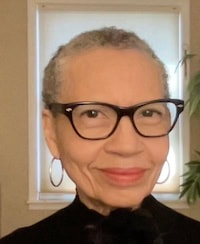

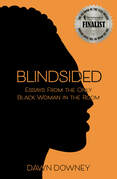
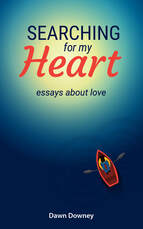
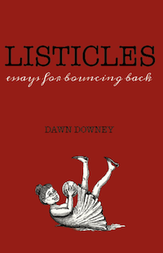
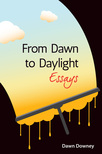

 RSS Feed
RSS Feed